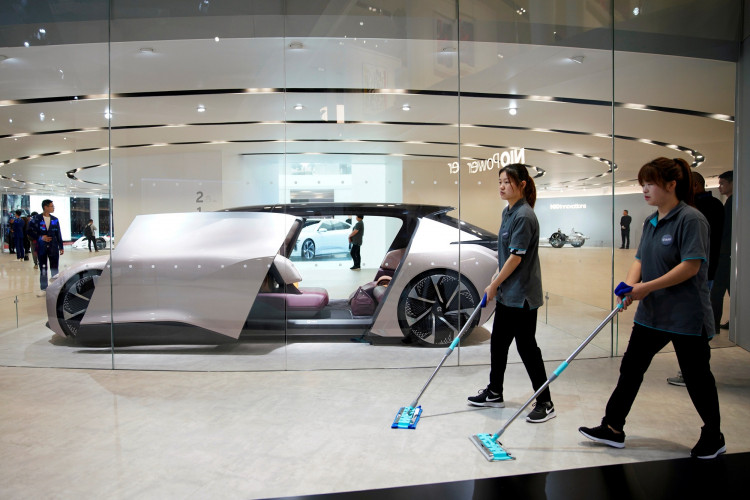Chinese electric vehicle manufacturer NIO has managed to secure a cash infusion of 7 billion yuan or roughly $1 billion through a signed agreement with three strategic investors. The company acquired the additional capital to ease concerns about its operations and to help it recover quicker from the crisis.
NIO had to agree to certain terms required by the strategic investors, which included the integration of its core businesses into a new company that would be called NIO China. The investors, Hefei City Construction and Investment Holding, Anhui Provincial Emerging Industry Investment, and CMG-SDIC Capital, asked that NIO inject its assets in China, including supply chain, sales, and vehicles research and development into the new company.
The Chinese carmaker mentioned in a statement on Wednesday that it will also be investment 4.26 billion yuan of its own money into the new company. Under the deal, NIO will control a 75.9 percent controlling stake in NIO China, while its three strategic partners will control the rest of the 24.1 percent stake.
The new company will set up its headquarters in the city of Hefei, the capital of China's eastern Anhui province. Its new headquarters will be located near where its ES8 electric sports utility vehicle is being built by its state-owned partner JAC Motors.
The company's founders and chief executive officer, William Li Bin, had stated after signing the deal that the funds should help NIO enhance its operations and support its business development and growth. The injection of new capital comes at a crucial time for NIO as investors have raised concerns about whether it can continue operating given its losses. Last year, the company reported an annual loss of $1.6 billion.
NIO is banking on the new capital to help it increase its competitiveness to take on rapidly growing rivals such as FAW-Volkswagen and Tesla. Carmakers in China have been scrambling to shore up their finances by enhancing liquidity after they have been forced to shut down operations during the first few months of the year to mitigate the spread of the virus.
Having the finances to proceed with its plans will be vital for NIO given the challenges facing China's new energy car market, which has been battered by the domestic economic slowdown, subsidy cuts, and the spread of the coronavirus pandemic. Last month, car sales in China fell for the 21st consecutive month. First-quarter car sales in China fell by more than 42 percent when compared to the same period last year, according to the China Association of Automobile Manufacturers.





